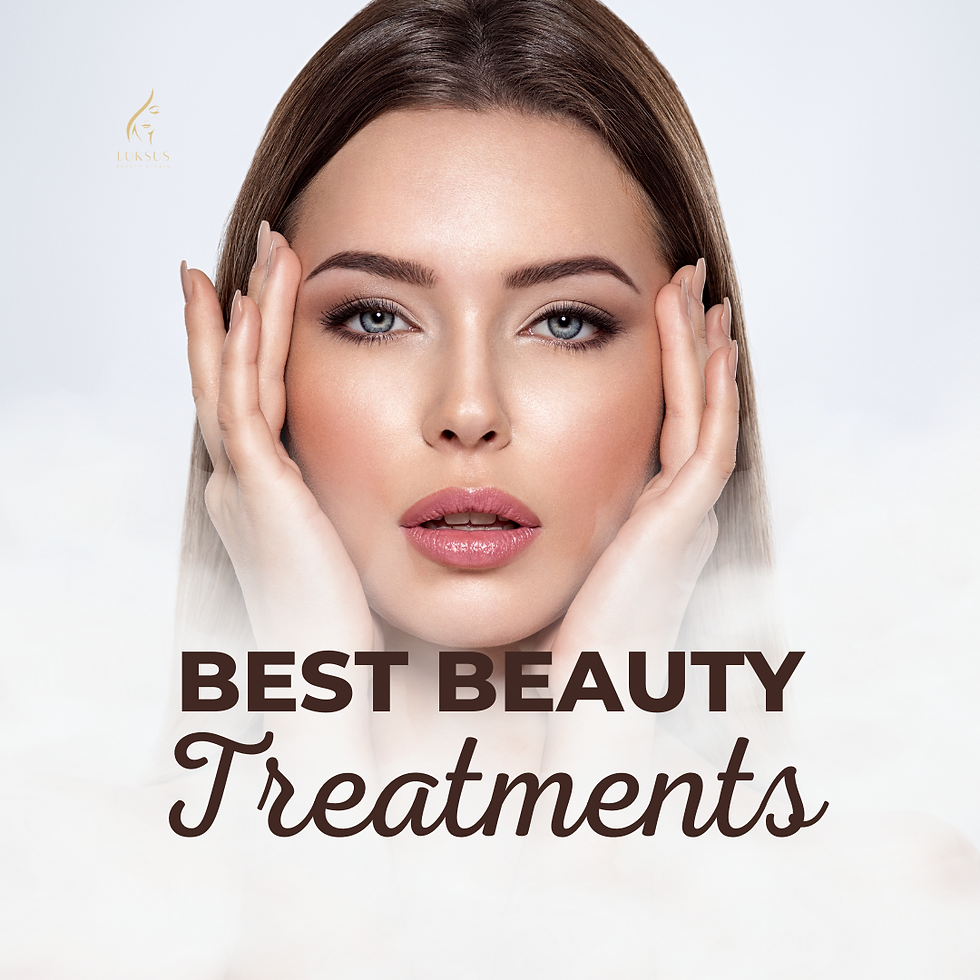The power of nutrition for radiant skin
- Lorena

- Sep 26, 2024
- 3 min read
Updated: Nov 9, 2024

Your skin is the body’s largest organ, and like any other organ, its health is closely tied to what you eat. While skincare products can help address surface-level issues, the foundation of glowing, clear skin often starts with your diet. Let’s explore how diet affects your skin, from promoting radiance to preventing common skin issues.
1. Hydration: water for supple skin
Impact on Skin: Drinking enough water is crucial for maintaining skin hydration and elasticity. Dehydrated skin can look dull, dry, and prone to fine lines.
Diet Tip: Increase water intake by consuming hydrating foods like cucumbers, watermelon, and leafy greens. Herbal teas also contribute to hydration.
2. Antioxidants for a youthful glow, the power of nutrition for radiant skin
Impact on Skin: The Power of Nutrition for Radiant Skin, antioxidants fight free radicals, unstable molecules that contribute to skin aging. These free radicals are often caused by sun exposure, pollution, and processed foods.
Diet Tip: Include foods rich in antioxidants like berries (blueberries, strawberries), dark chocolate, green tea, and colorful vegetables (bell peppers, spinach) to protect and rejuvenate skin cells.
3. Healthy fats for moisture and elasticity
Impact on Skin: Omega-3 fatty acids help maintain the skin's lipid barrier, preventing moisture loss and keeping skin soft and plump. Deficiency in healthy fats can lead to dryness, flakiness, and even inflammation.
Diet Tip: Incorporate foods rich in omega-3s such as fatty fish (salmon, mackerel), flaxseeds, chia seeds, walnuts, and avocados for smoother, more radiant skin.
4. Vitamin C for collagen production
Impact on Skin: Vitamin C is crucial for collagen production, which helps keep skin firm and youthful. It also brightens the complexion and helps repair damaged skin.
Diet Tip: Citrus fruits (oranges, lemons), strawberries, broccoli, and kiwi are high in vitamin C, making them excellent for boosting collagen levels and reducing signs of aging.
5. Zinc and selenium for acne prevention
Impact on Skin: Both zinc and selenium are powerful minerals that help reduce inflammation, regulate oil production, and repair damaged skin cells. They are particularly beneficial for people prone to acne.
Diet Tip: Foods like pumpkin seeds, Brazil nuts, oysters, and eggs are rich in zinc and selenium and can aid in reducing acne and promoting clearer skin.
6. Processed sugars and refinedcarbs: A recipe for breakouts
Impact on Skin: High-glycemic foods, such as white bread, sugary snacks, and sodas, cause spikes in blood sugar levels. This triggers an increase in insulin, which can lead to inflammation, excess oil production, and acne breakouts.
Diet Tip: Opt for low-glycemic foods like whole grains, legumes, and vegetables to stabilize blood sugar and reduce acne flare-ups.
7. Dairy and skin sensitivity
Impact on Skin: While the relationship between dairy and acne isn't clear-cut, some studies suggest that milk, particularly skim milk, can increase acne in sensitive individuals. Hormones in dairy products may stimulate oil glands and lead to clogged pores.
Diet Tip: If you experience persistent acne, try reducing your dairy intake and opting for plant-based alternatives like almond milk, oat milk, or coconut milk to see if your skin improves.
8. Vitamin E for skin repair
Impact on Skin: Vitamin E is a potent antioxidant that supports skin repair and protects against UV damage. It also helps maintain skin softness and prevents dryness.
Diet Tip: Load up on vitamin E-rich foods like almonds, sunflower seeds, spinach, and sweet potatoes to support skin healing and defense against environmental stress.
9. Probiotics for a clear complexion
Impact on Skin: Gut health plays a surprising role in skin clarity. A diet high in processed foods can lead to imbalances in gut bacteria, which may cause inflammation and breakouts. Probiotics, which support a healthy gut, can help reduce inflammation and acne.
Diet Tip: Include fermented foods like yogurt, kefir, sauerkraut, kimchi, and kombucha to improve gut health, which may result in clearer, calmer skin.
10. Alcohol and caffeine: drying and aging the skin
Impact on Skin: Both alcohol and caffeine can dehydrate the skin, making it look tired and dull. Alcohol also dilates blood vessels, which can lead to redness and puffiness, while excess caffeine can increase the appearance of wrinkles.
Diet Tip: Limit alcohol and caffeine consumption, and increase your intake of water-rich foods like celery, tomatoes, and citrus fruits to keep your skin hydrated and youthful.
In the power of nutrition for radiant skin, diet plays a powerful role in the health and appearance of your skin. By fueling your body with the right nutrients, you can help promote clear, youthful, and radiant skin from the inside out. Consuming a balanced diet rich in whole foods, antioxidants, healthy fats, and hydration can make a world of difference for your complexion.
So, the next time you think about skincare, remember—your plate matters as much as your products!


